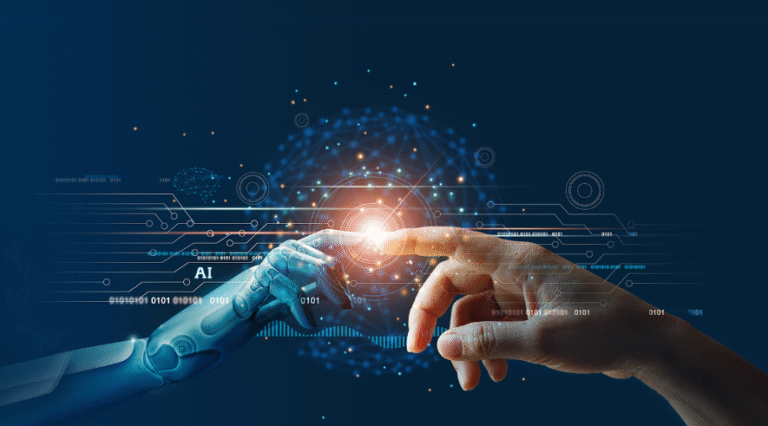Discover the cutting-edge advancements in artificial intelligence, from novel algorithms to real-world applications. Explore the latest breakthroughs shaping the future of AI and how they’re transforming industries worldwide.
Introduction to Artificial Intelligence
Artificial Intelligence (AI) has rapidly transformed from a niche scientific curiosity into a cornerstone of modern technology. It encompasses the design of machines and software capable of performing tasks traditionally requiring human intelligence—such as reasoning, learning, and problem-solving.
Historical Overview of AI Development
The roots of AI date back to the 1950s when pioneers like Alan Turing and John McCarthy laid foundational concepts. Early AI focused on symbolic logic and rule-based systems but faced significant limitations, known as the “AI winter,” due to computational constraints.
Why AI Breakthroughs Matter Today
Today’s breakthroughs aren’t just incremental improvements; they signal paradigm shifts that enable AI systems to learn from vast datasets, generalize better, and tackle complex tasks—opening new horizons for industries and societies alike.
See also: How to Use Model XUCVIHKDS Number: A Simple Guide for Everyone
Understanding Modern AI Technologies
Modern AI leverages techniques like machine learning, deep learning, and neural networks. These allow AI to process unstructured data, identify patterns, and make predictions with unprecedented accuracy.
Breakthroughs in Machine Learning Algorithms
Recent advances in algorithms, including gradient boosting and ensemble methods, have improved predictive power while reducing training times, facilitating better decision-making in business, medicine, and more.
Deep Learning: Revolutionizing AI
Deep learning, inspired by the human brain’s neural networks, uses multi-layered architectures to model complex data relationships. Innovations like convolutional neural networks (CNNs) and recurrent neural networks (RNNs) are at the forefront.
Transformers and Natural Language Processing (NLP)
The introduction of transformer models (e.g., BERT, GPT series) revolutionized NLP by enabling machines to understand context, nuance, and generate human-like text, powering virtual assistants and automated content creation.
AI in Computer Vision: New Frontiers
AI breakthroughs in computer vision allow for real-time object detection, facial recognition, and image generation, essential in areas like security, healthcare diagnostics, and augmented reality.
Reinforcement Learning Advances
Reinforcement learning, where AI learns optimal actions via trial and error, has seen leaps with applications in gaming, robotics, and autonomous systems adapting to dynamic environments.
Generative AI: Creating Beyond Imagination
Generative models, such as GANs (Generative Adversarial Networks), can create realistic images, music, and videos, sparking creativity and transforming entertainment, marketing, and design.
AI and Quantum Computing: A Synergistic Future
Quantum computing promises to exponentially accelerate AI training and problem-solving, potentially revolutionizing optimization, cryptography, and complex simulations.
AI in Healthcare: Life-Saving Innovations
From early disease detection to personalized treatment plans, AI breakthroughs are revolutionizing healthcare, improving outcomes while reducing costs and enhancing patient experiences.
AI in Autonomous Vehicles: Progress and Challenges
Self-driving technology continues to mature with advances in sensor fusion, path planning, and safety protocols, though regulatory and ethical challenges remain before widespread adoption.
Ethical AI: Ensuring Responsible Innovation
Breakthroughs in fairness, bias mitigation, and privacy-preserving AI are crucial to developing systems that align with societal values and protect human rights.
Explainable AI: Making AI Decisions Transparent
New methods in explainability allow stakeholders to understand and trust AI decisions, essential for sectors like finance, law, and healthcare where accountability is critical.
AI in Robotics: Smarter and More Adaptive Machines
AI breakthroughs enable robots to navigate complex environments, interact naturally with humans, and perform intricate tasks across industries, from manufacturing to elder care.
Edge AI: Bringing Intelligence Closer to Users
Edge AI processes data locally on devices rather than relying solely on cloud computing, reducing latency and enhancing privacy for applications in IoT, smartphones, and autonomous drones.
AI for Climate Change: Fighting Global Challenges
AI models help monitor environmental changes, optimize energy consumption, and develop sustainable solutions, playing a vital role in tackling climate change.
AI in Finance: Risk Management and Fraud Detection
Financial institutions leverage AI for predictive analytics, portfolio management, and real-time fraud detection, enhancing security and operational efficiency.
The Role of Big Data in AI Breakthroughs
The explosion of big data fuels AI’s learning capabilities, enabling models to discover insights and improve accuracy across diverse applications.
Challenges in Scaling AI Solutions
Despite breakthroughs, challenges such as data quality, model interpretability, and infrastructure costs continue to hinder large-scale AI deployments.
Collaborative AI: Humans and Machines Working Together
Hybrid intelligence combines human creativity with AI’s computational power, enhancing decision-making and innovation across fields.
The Future of AI Research: Emerging Trends
Emerging trends include multimodal AI, AI democratization, and AI-driven scientific discovery, pointing to an exciting future of increasingly capable systems.
AI in Everyday Life: What’s Next?
From smart homes to personalized education, AI’s latest breakthroughs are shaping the way we live, work, and interact with technology daily.
Conclusion: Embracing the AI Revolution
The latest breakthroughs in AI signify transformative progress, promising to solve complex problems and unlock new possibilities while demanding responsible development and ethical vigilance.
Frequently Asked Questions (FAQs)
Q1: What is the most significant recent breakthrough in AI?
A: The development of transformer models like GPT-4, which dramatically improved natural language understanding and generation, is among the most impactful.
Q2: How is AI transforming healthcare?
A: AI enhances diagnostics, treatment personalization, drug discovery, and operational efficiency, leading to better patient outcomes.
Q3: What are the ethical concerns with AI advancements?
A: Issues include bias, privacy, transparency, and accountability, all requiring robust frameworks to ensure responsible AI use.
Q4: Can AI replace human jobs?
A: AI automates repetitive tasks but also creates new roles emphasizing creativity, oversight, and complex problem-solving, fostering collaboration rather than replacement.
Q5: What industries benefit most from AI breakthroughs?
A: Healthcare, finance, automotive, manufacturing, retail, and environmental management are among the top sectors leveraging AI innovations.
